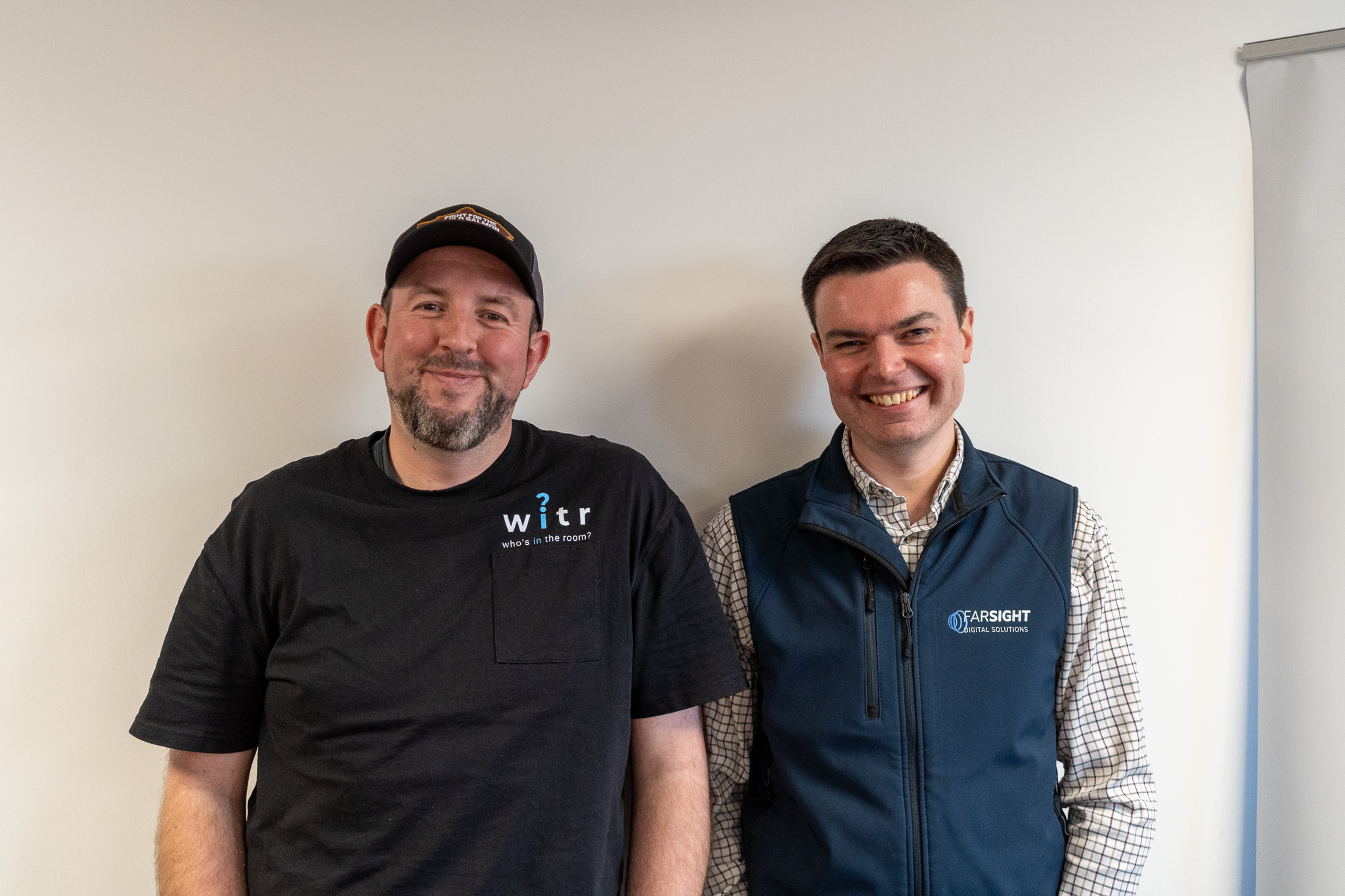Kirsty Bathgate is the Founder and CEO of Gearing for Growth and an accredited professional executive coach. She is passionate about making the journey for Founders, CEOs and leaders less rocky, stressful and daunting. She works with Founders, CEOs, and Leaders of high-growth businesses to support them in developing strong leadership skills, values-led cultures, high-performance teams, and effective boards. Having taken that journey herself, she has over 25 years of experience in leading, growing businesses and coaching leaders and teams. Kirsty believes that by enabling senior leaders to lead intentionally, purposefully and well; the impact on the business, its people, results and the wider community is huge. She has been privileged to work with more than 200 leaders across a broad range of sectors.
You're in the leadership meeting, and someone just asked for your strategic input on next quarter's priorities. Your mind goes blank. Everyone's looking at you, and all you can think is: "What am I doing here? These people are going to realise I have no idea what I'm talking about."
Sound familiar?
Here's the thing nobody tells you about stepping into startup leadership: that feeling of being a complete fraud doesn't go away just because you've got the title and the salary to match. If anything, it gets worse.
Impostor syndrome hits hardest when you're growing fastest. When you've just made the leap from doing the work to leading the people who do the work. When you're suddenly in rooms where everyone seems to know something you don't.
And the worst part? The founders and leaders who look most confident are often the ones battling the loudest internal voice telling them they don't belong.
What Impostor Syndrome Actually Looks Like
It's not just occasional self-doubt. It's persistent patterns that show up in specific ways:
The Achievement Dismissal Machine: You just closed a major partnership, but you're thinking "they only said yes because the timing worked out." Your team delivered ahead of schedule, but you credit it to "hiring the right people" rather than your leadership. Every win gets explained away as luck, timing, or someone else's contribution.
The Waiting-to-Be-Exposed Fear: You're convinced someone's going to ask the question you can't answer or spot the gap that proves you're not qualified. So you overprepare everything, stay late checking work that doesn't need checking, and avoid situations where you might be challenged.
The Compliment Deflection Reflex: When someone praises your work, your immediate response is "Oh, it was nothing" or "The team did all the heavy lifting." Positive feedback makes you physically uncomfortable because accepting it feels like a lie.
The Perfectionism Trap: You can't ship that feature or present that strategy until it's absolutely perfect. Because if it's anything less than flawless, people will see through you.
These patterns are brutal in startup environments. You're expected to figure things out on the fly, make decisions with incomplete information, and confidently lead through uncertainty. The startup world compounds this - high pressure, rapid growth, constant comparison to other founders who seem to have it all figured out.
Why Leadership Feels Like Swimming in the Deep End
Here's what nobody tells you about moving into leadership: the skills that got you here are not the skills that keep you here.
You probably got promoted because you were exceptional at execution. You delivered results. You solved problems. You got things done.
Now suddenly, your job isn't to do things - it's to think about things. To set strategy while your team handles execution. To spend your time in meetings that feel completely detached from "real work."
And it's terrifying.
Because if you're not directly producing tangible output, what exactly are you contributing? This is where impostor syndrome thrives - in that uncomfortable space between your old identity and your new one.
How to Actually Function When You Feel Like a Fraud
The good news is that impostor syndrome isn't something you need to "cure." It's something you learn to work with. Here's how.
Shift How You Think About Your Role
Your job now isn't about being the smartest person in the room. It's about understanding how all the rooms connect.
Start by observing, not performing: Resist the urge to prove yourself by contributing immediately. Spend your first few weeks just listening. What are the team's actual priorities? How do decisions really get made? This takes the pressure off having brilliant insights from day one.
Build relationships, not just networks: Your insights become valuable when you understand how they connect to other people's challenges. Schedule one-on-ones to understand what keeps your peers up at night. When you do contribute, it'll land because it connects to problems people actually care about.
Practice perspective-taking: When strategies clash, genuinely try to understand why someone else's approach makes sense from their vantage point. Often, what looks like a conflict is actually complementary strategies viewed from different angles.
Relearn What "Productive" Means
Early in your career, being productive meant checking things off your task list. Leadership requires a completely different relationship with productivity.
Give yourself permission to think: Block time in your calendar that looks completely empty. Just space to define what your team should be working toward and whether it aligns with where the company needs to go. This feels wildly uncomfortable at first. Ignore that feeling. The business is literally paying you to think now, not just to act.
Communicate the "why," not just the "what": Your team needs context, not just tasks. When you delegate work, explain how it connects to broader goals. People work better when they understand why their work matters.
Actually delegate (and don't take it back): The hardest part of leadership is letting go of the work you used to be brilliant at. You'll be tempted to "just quickly do it yourself." Don't. Your job is to develop your team's capability, not to remain the best individual contributor in the building.
Make Friends with Uncertainty
The panic you feel when you step away from day-to-day execution? That's not impostor syndrome - that's just what growth feels like.
Name what's actually happening: When you catch yourself thinking "I don't know what I'm doing," add specificity. Is it that you don't know what to do today? Or that you're unclear on what success looks like in six months? Sit down and write out what success looks like in two to three years, then work backward. Suddenly you've got landmarks to aim for.
Reframe the discomfort: Every time you feel that "am I even doing anything useful?" feeling, remind yourself: this is exactly what it feels like to step into a bigger role. The discomfort is data. It means you're stretching into capabilities you don't fully have yet.
Accept that you won't feel "ready": There's no magical moment when you wake up and feel completely confident. The founders who look like they have it all figured out? They're also making it up as they go.
Resist the Siren Call of Your Comfort Zone
When things get hard, your brain will try to pull you back to what feels safe. Back to doing the work yourself. Back to the tasks you know you're good at.
Don't do it.
Retreating to your old role doesn't just slow your growth - it actively prevents your team from developing. Stick with the discomfort. It's temporary. The confidence comes from doing the new work, not from avoiding it until you feel ready.
When Self-Doubt Is Actually Just Growth
Here's the distinction that matters: Not all self-doubt is impostor syndrome.
Sometimes, that uncomfortable feeling is simply your nervous system catching up to a new reality. You're learning a role you've never done before, making decisions you've never had to make.
The question is: does the discomfort make you want to hide, or does it make you want to learn? If you're feeling stretched but curious, you're in your growth zone. If you're feeling exposed and fraudulent, that's when impostor syndrome is actually at play.
Start recognising these moments of discomfort as evidence you're doing something right - not proof that you're failing.
You Don't Have to Figure This Out Alone
If any of this sounds familiar, here's what matters most: you're not the first founder or leader to feel this way. The ones who've successfully navigated it didn't just "toughen up" or wait for confidence to appear magically.
They leaned on mentors who reminded them they'd earned their position. They built peer networks with other founders facing the same challenges. They talked openly about the doubts that felt too vulnerable to admit elsewhere.
At Techscaler, we've built an entire community around this reality. Because the fastest way through impostor syndrome isn't to pretend you have all the answers - it's to surround yourself with people who can offer perspective when you've lost yours.
Ready to connect with other founders who get it? Sign up for Techscaler today and join a community that understands the real challenges of startup leadership. Be sure to check out Kirsty Bathgate and Gearing for Growth.






.png)










